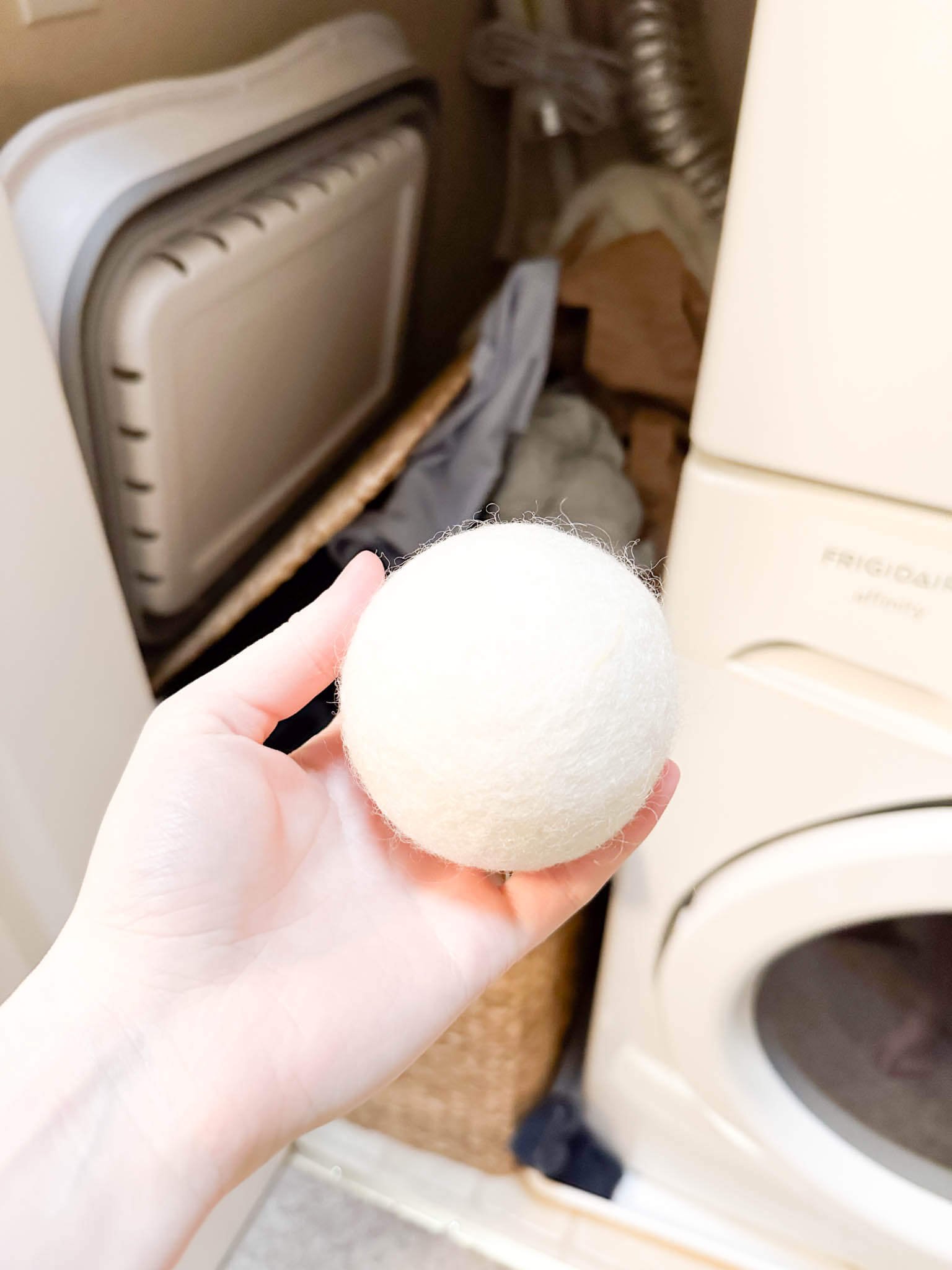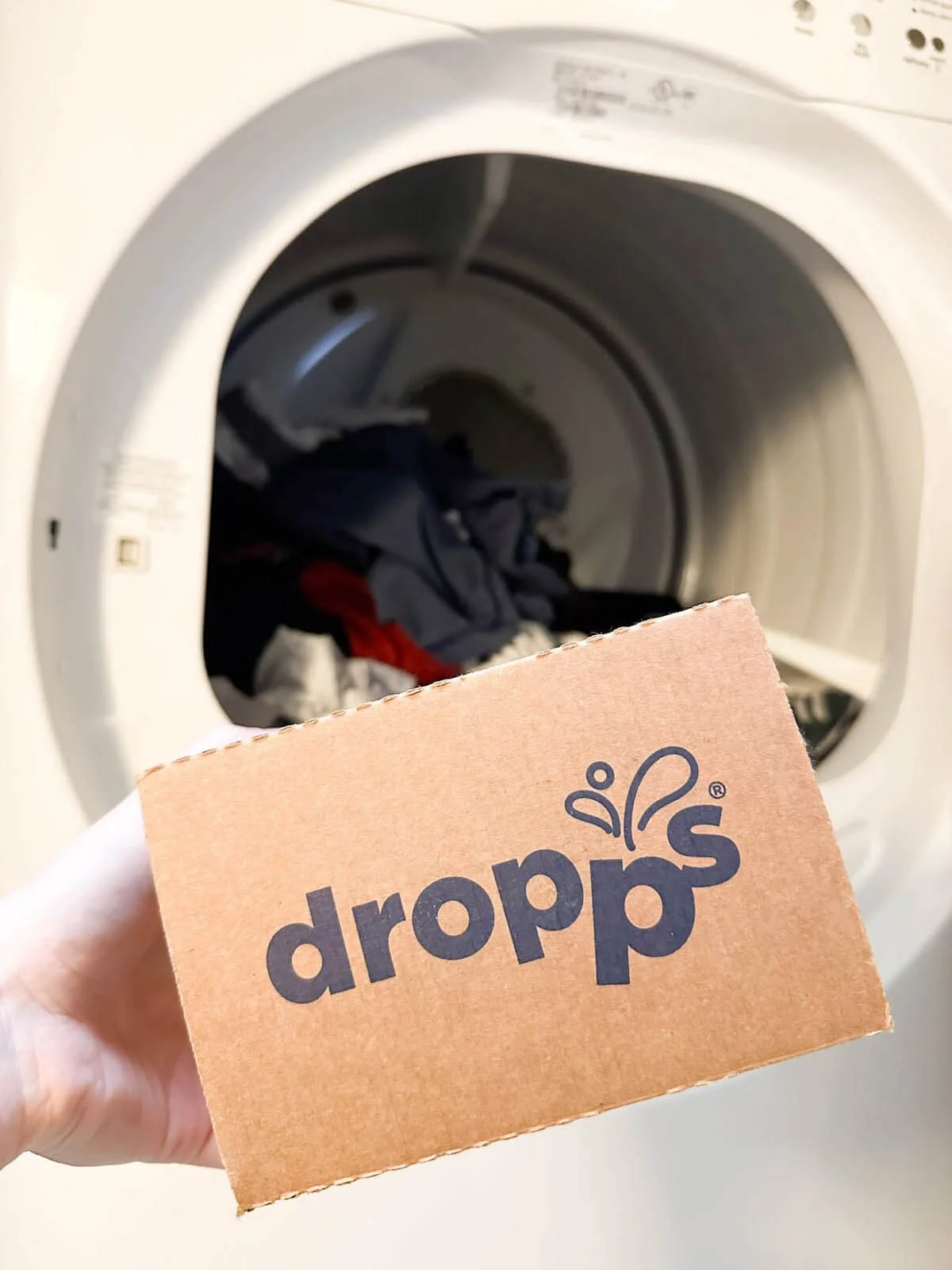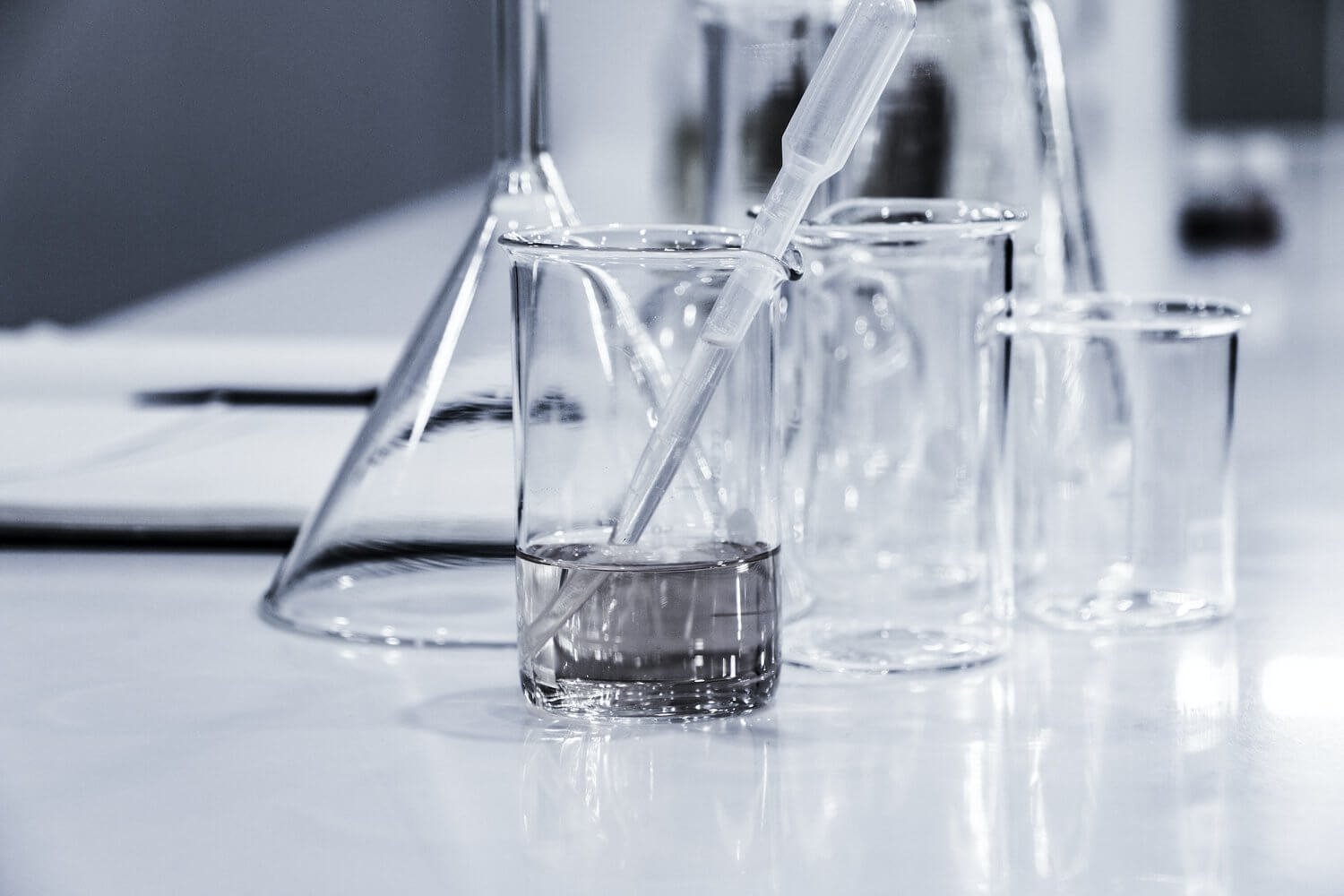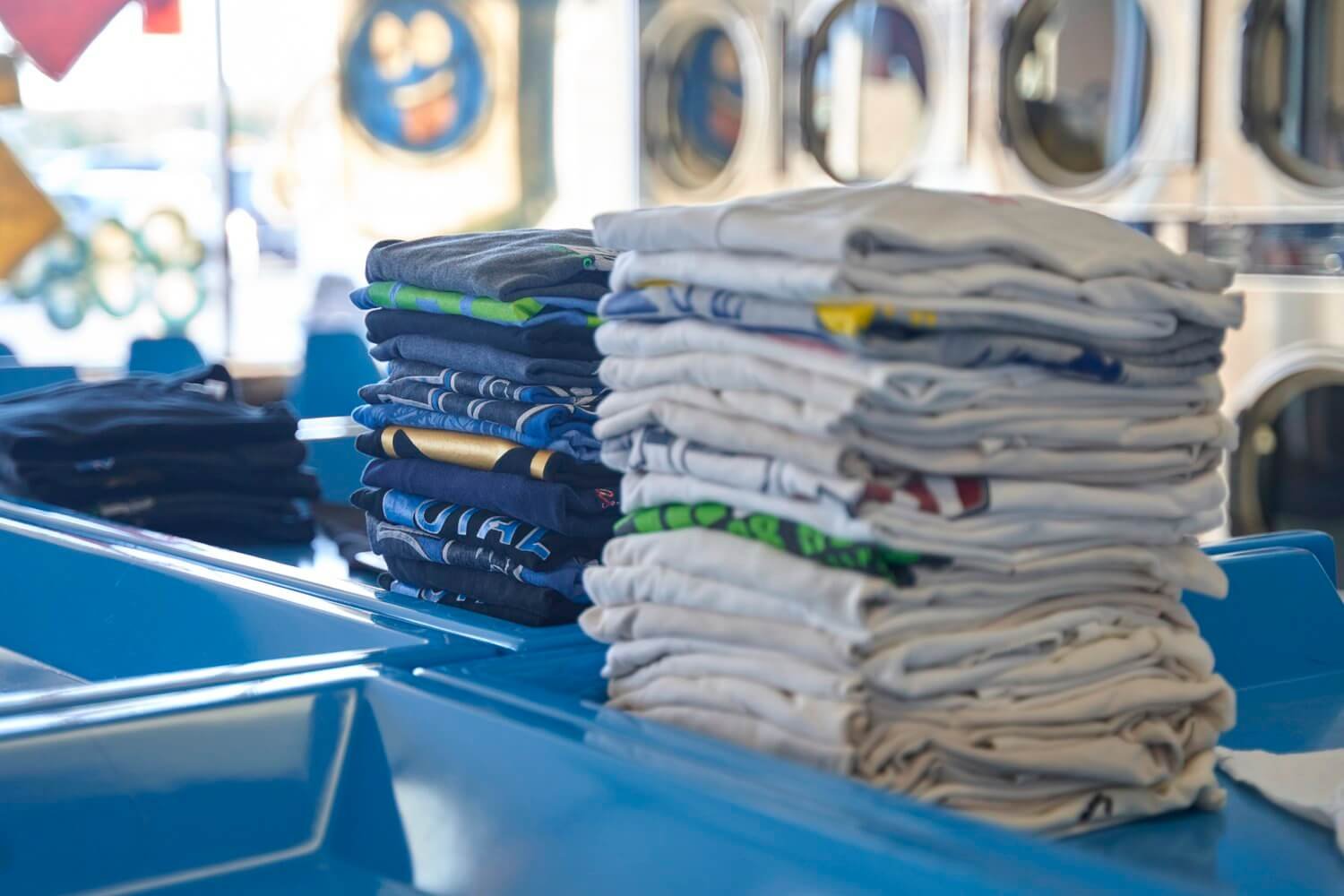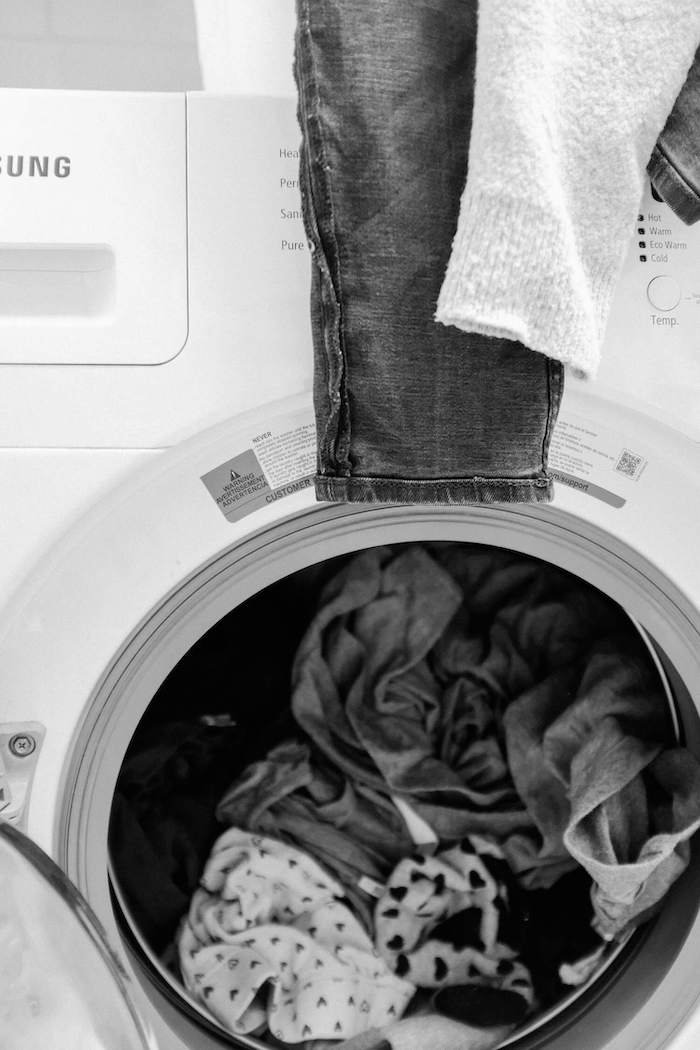5 Best Non-Toxic Fabric Softeners for Eco-Friendly Laundry
Fabric softener makes your clothes smell great and feel soft.
However, did you know most fabric softeners are a bunch of chemicals mixed together and designed to thinly lubricate the surface of your clothes which has the potential to cause harm to the environment & human health.
Plus, they typically come in plastic bottles that further contribute to the plastic pollution that is currently impacting the earth.
The good news is that there are a few non-toxic fabric softeners that you can use instead.
Pin this fabric softener guide for later
This guide will highlight some of the non-toxic fabric softeners that you can buy. Plus, this blog post will highlight ingredients to watch out for when shopping for your next softener.
This post contains affiliate links. The Honest Consumer may receive a commission if you decide to purchase, however, at no additional cost to you! Learn more in the disclaimer.
5 Non-toxic Fabric Softener Brands for Fresh Clean Clothes
If you're still hoping to have soft clothes, but looking for natural alternatives these non-toxic laundry brands are a great option!
These eco-friendly fabric softener options will be a better alternative to traditional fabric softeners and fit perfectly into your laundry routine.
Molly’s Suds Natural fabric softeners & wool dryer balls
Price Range: $12-$17
Molly’s Suds has a variety of natural fabric softeners including liquid, sheets, and dryer balls.
The brand was created by Monica Leonard, a pediatric nurse. The fabric softener dryer sheets are not only plant-based but also free of petrochemicals, dyes, solvents, and pesticides.
Plus, they come in recycled and biodegradable packaging.
It is a great choice for people with sensitive skin. On top of their fabric softener dryer sheets, Molly’s Suds also offers wool dryer balls.
Molly’s Suds wool dryer balls are made using New Zealand wool that is cruelty-free. They are safe to use on all types of clothing and do not leave any lint or residue. They are also reusable for up to 3 years.
They are sold as a bag of 6 extra large balls.
Why I Love This Brand: Molly’s Suds products are cruelty-free and contain no dyes, waxes, or synthetic fragrances. They are handmade, reusable, and Leaping Bunny Certified. Plus, I’ve been using these wool dryer balls for over five years and LOVE how they hold up and make my clothes feel.
Dropps Natural fabric softener
Price Range: $19+
Dropps stands out because their fabric softeners have completely revolutionized household sustainability. The brand sells its softeners in biodegradable pods. To use them, simply let them dissolve in water, which they do without leaving any residue.
Dropps fabric softener is made using natural materials that are mineral based. They are 100% free of toxic or synthetic chemicals. They are also certified cruelty free.
Dropps features multiple fresh scents customers can choose from including orange blossom, lavender eucalyptus, and more.
They come in recyclable cardboard packaging that is shipped using carbon-neutral shipping methods. A small amount of all Dropps profits goes to Oceana, an ocean conservation charity.
Why I Love This Brand: I’ve been using Dropps laundry detergent and fabric softener for five years! I always love how clean my laundry smells and feels! You can read my original Dropps review from when I first started using their products back in 2019! Still using their products in 2024!!
Public Goods Phthalate Free Fabric softener sheets
Price Range: $7
Public Goods dryer sheets are made entirely using plant-based ingredients with zero toxic chemicals. The sheets are free from phthalates, phosphates, and parabens. This guarantees that no toxins will be released into your clothes, your skin, or the air.
If you have fragrance allergies, you’ll love this product. These fabric softeners are hypoallergenic, which makes them a great choice for people with respiratory allergies.
They come as a pack of 80 rayon sheets for $7.
Why I Love This Brand: Public Goods dryer sheets are fragrance-free and plant-based. They contain no toxins and are great for sensitive skin. I’ve tried many Public Goods products over the years and am always happy with the quality.
Kind Laundry’s Wool Dryer Balls
Price Range: $20
Kind Laundry’s Wool Dryer Balls stand out because they are earth-friendly and very long-lasting. This makes them a great alternative to synthetic fabric softeners especially if you're looking to ditch the single-use dryer sheets.
You can use the wool balls for up to 1000 laundry loads, which makes them extremely sustainable.
Made of 100% pure New Zealand Wool, this brand is Leaping Bunny Certified. Their product is great for people with sensitive skin as it is a completely natural softener.
If you have been looking for a convenient way to soften your laundry in an eco-friendly way, this is it! They will also help you reduce wrinkles and prevent static cling.
A set of three wool dryer balls can be purchased for $20.
What I Love About This Brand: Kind Laundry’s Wool Dryer Balls are cruelty-free and Leaping Bunny Certified. They are also very durable and designed to last a very long time. You can use them for up to 1000 laundry loads!
Seventh Generation’s Fabric Softening Sheets
Price Range: $7-$23
Seventh Generation’s fabric softening sheets are made with 97% plant based ingredients.
Their dryer sheets are Leaping Bunny Certified, USDA Certified Biobased, and EPA Safer Choice Certified.
They offer a variety of essential oil based scents including lavender, fresh morning meadow, and tropical grove.
Plus, their Free and Clear Fabric Softener Sheets are dermatologist tested and fragrance-free.
Why I Like This Brand: I appreciate that these dryer sheets have three third party certifications!
Is fabric softener toxic?
A lot of fabric softeners today are made using chemicals that may be considered to be toxic. Because fabric softeners coat your clothes, the chemicals in them will be slowly released throughout the day into the air and onto your skin.
This explains why some people are sensitive to certain fabric softeners. Babies, children, and older people may be especially susceptible to skin irritation.
Luckily there are some cleaner brands creating less toxic solutions! That’s why we created the list above!
Are there harmful ingredients consumers should avoid and why?
According to the Environmental Protection Agency and industry-generated Material Safety Data Sheets, there is a huge list of dangerous chemicals that are used in fabric softeners.
The EPA also warns that some of these chemicals are being used in untested combinations.
Here is a list of harmful ingredients that you should look out for in fabric softeners. For each ingredient, we also explain why it is best to avoid:
Ethyl Acetate: It is on the EPA’s list of hazardous wastes. It is an eye and respiratory tract irritant. Can also cause headaches, narcosis, anemia, and liver and kidney damage.
Benzyl Acetate: Potentially carcinogenic, linked to pancreatic cancer. It also produces vapors that are irritating to the respiratory system and the eyes. It can also be absorbed through the skin.
Chloroform: It is neurotoxic and carcinogenic. It is also on the EPA’s hazardous wastes list. Inhalation may cause headaches, dizziness, drowsiness, and loss of consciousness. It also aggravates disorders of the liver, heart, and kidney.
Phthalates: Used in scented products to help the scent last longer. Is carcinogenic and has been linked to allergies and reproductive system problems.
A-Terpineol: Can cause central nervous system disorders. Irritating to the mucous membranes. Can also cause pneumonia.
Camphor: It is on the EPA’s hazardous wastes list. Can cause central nervous system disorders. It is easily absorbed by the body. Can also cause twitching muscles, convulsions, confusion, and dizziness.
Linalool: Can cause respiratory disturbances and central nervous system disorders.
Benzyl Alcohol: A respiratory tract irritant. Can also affect the central nervous system and lead to headaches, nausea, vomiting, and dizziness.
Limonene: A carcinogen that is also an eye and skin irritant.
Are there environmental impacts from the ingredients or fabric softener?
To get their lubricating properties, many liquid fabric softeners use petroleum-based chemicals. These chemicals are gotten from fossil fuels.
Additionally, many fabric softeners also contain harmful substances (examples listed above) that are neither good for human health nor the environment.
Many of them are non-biodegradable and when present in water, have been shown to be harmful to marine life.
There is also the plastic packaging that most fabric softeners come in. This plastic eventually ends up in landfills, contributing to the plastic pollution that the world is dealing with currently.
Select liquid softener can also cause clothing to break down more quickly due to their harsh impact on clothing fibers.
What are better/cleaner ingredients consumers should look for in fabric softeners?
If you absolutely have to use fabric softeners, consider using eco-friendly fabric softeners. They are designed to be kinder to you and the planet.
Instead of using toxic chemicals, they rely on natural and organic alternatives to achieve the same results.
Soy-based softeners are a popular choice. You can also use dryer balls instead of liquid softeners.
If you want to completely avoid using chemical fabric softeners, here are some homemade fabric softener alternatives made with household products:
Add a quarter cup of baking soda to your washing machine cycle
Add a quarter cup of vinegar to the cycle to soften the clothes
Dry clothes outside to eliminate static
Add a piece of crumpled-up aluminum foil in the dryer with clothes to eliminate static
Use less laundry detergent to make your clothes softer
Make your own fabric softener. There are many recipes online for DIY fabric softeners that use ingredients that you already have in your home. You can customize the scent with drops of your favorite essential oil too!
Can fabric softeners reduce the lifecycle of clothing? Does it cause clothing to break down faster?
Yes, many conventional fabric softeners can harm the life cycle of your clothes. They create a waxy waterproof coating over your clothes, which reduces the fabric’s ability to absorb water and detergent.
Over time, your clothes will no longer hold up well in the wash.
Using liquid softeners when washing towels will similarly make them less absorbent. This makes bath towels and cloth dish towels less effective over time.
Traditional fabric softeners may make your clothes feel soft, smell good, and be static-free, but the price you pay is that your clothes can be exposed to toxic materials.
Over time, continued use of fabric softeners can cause a wide range of health problems.
The good news is that there are several non-toxic eco-friendly alternatives that you can explore.
Hopefully, now that you’ve read this guide, you know exactly where to start when shopping for laundry products.
Also be sure to check out our best non-toxic laundry detergent guide for a cleaner laundry day!
EXPLORE MORE SUSTAINABLE LIVING GUIDES:
MEET THE AUTHORS
INDUSTRY RESEARCH
Kelly Clark is a freelance writer, who enjoys writing about a variety of topics including personal development and using cleaner products. When she’s not writing you can find her listening to music, reading, and diving into more sustainable living topics, especially surrounding self care and eco-conscious beauty. Learn more from Kelly on LinkedIn or Instagram.
PRODUCT TRAIL & RECOMMENDATION
Emily Waddell is the founder of The Honest Consumer and an expert in conscious consumerism. She has been in the ethical & sustainable living space for ten years. Emily has always been passionate about business for good and has a Bachelor degree in Social Entrepreneurship. When she’s not writing, Emily enjoys supporting small businesses, finding locally grown food at the farmer’s market, & practicing slow living.
For more ethical & sustainable fashion tips be sure to follow The Honest Consumer on social media, subscribe to our newsletter, & check out the Ethical & Sustainable Brand Directory.


